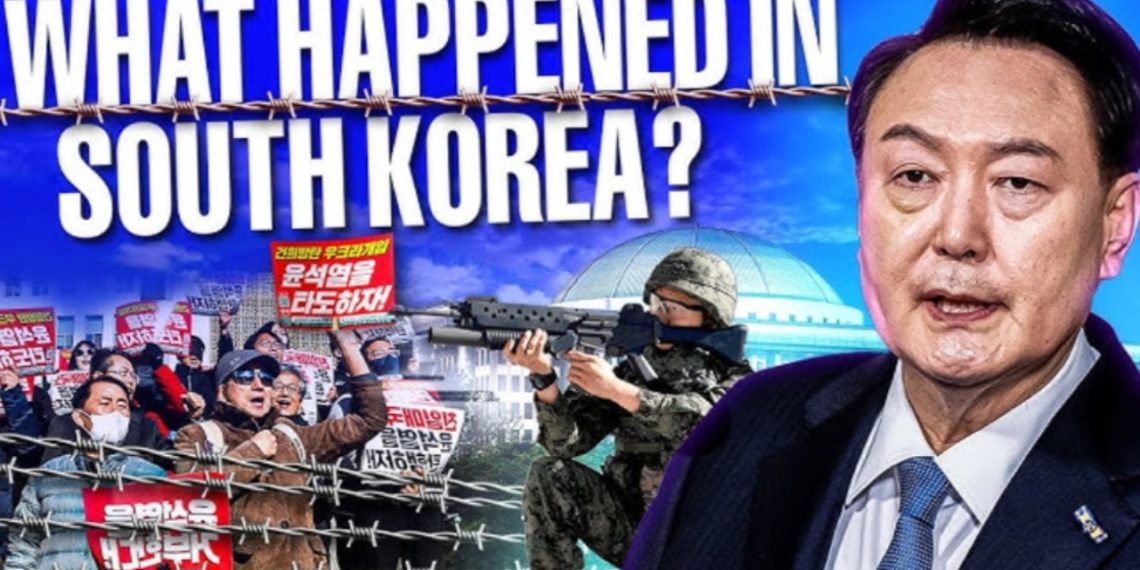South Korean President Yoon Suk Yeol made a dramatic and controversial move on December 3, 2024, when he declared martial law in the country. This unprecedented action, which was the first such declaration in over four decades, took place late in the evening.
Yoon cited a need to protect the nation from what he described as “anti-state” forces aligned with North Korea, accusing the opposition party of undermining the country’s democracy.
His decree included restrictions on political activities, public gatherings, media outlets, and more, and granted authorities the power to arrest individuals without warrants.
The move immediately triggered widespread shock and protests across South Korea. Thousands of citizens took to the streets, demanding that Yoon step down.

Political leaders, including those from his own party, condemned the action, with opposition lawmakers describing it as a “coup d’état.”
A few hours later, amid intense pressure, Yoon reversed his decision, withdrawing the military forces and agreeing to lift the martial law declaration after the National Assembly demanded its revocation.
Despite the reversal, the damage had already been done. Calls for Yoon’s resignation or impeachment intensified.
Opposition parties and labor unions threatened to initiate impeachment proceedings, accusing Yoon of illegal overreach and risking the country’s stability.
Experts warned that this could lead to prolonged political turmoil, with potential implications for South Korea’s foreign policy and international reputation. The entire episode has sparked a fierce national debate, and the political fallout continues to unfold.





